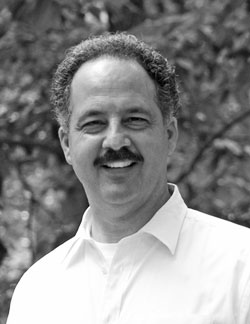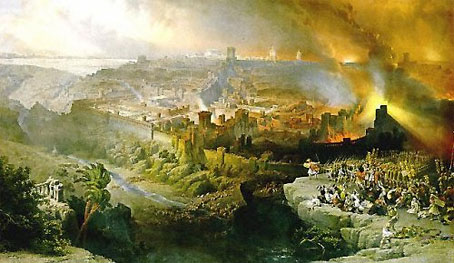Why I Don’t Go Full-Wilsonian

“I want to be like Doug Wilson when I grow up. My aim is to go full-Wilson in life. But to get there I must not go all-in Wilsonian…”

“I want to be like Doug Wilson when I grow up. My aim is to go full-Wilson in life. But to get there I must not go all-in Wilsonian…”
Here’s a great post from Doug Hayes’ blog, republished here with his permission.
When Rich Bledsoe was with us at Family Camp he mentioned a paper he wrote: Sex and the City, [PDF] which we have now placed on the RCC website. It is an interesting piece of biblical social commentary worth thinking about.
Bledsoe contrasts the great ancient cities with the great city of God, the New Jerusalem and their respective sexual commitments and activities. At the base of his comments is the presupposition that it is important for us to think about cities because “the entire planet is ‘metropolizing.’ Everywhere, human beings are leaving their rural roots and are moving into the city.”
An oldy but a goody from Gary DeMar:
 “If you’re gonna play the game, boy, ya gotta learn to play it right. You got to know when to hold ’em, know when to fold ’em, Know when to walk away and know when to run.”
“If you’re gonna play the game, boy, ya gotta learn to play it right. You got to know when to hold ’em, know when to fold ’em, Know when to walk away and know when to run.”
Kenny Rogers’ “The Gambler” has sold millions of copies since its 1978 release and spawned five made-for-TV movies. But the song’s appeal is in its no-nonsense philosophy. When there is no way to win, it’s time to walk away from the game. The game is over for Israel. Let me explain. In Tim LaHaye’s pre-tribulational rapture novel The Remnant the Jews are in for a hellacious future. Two-thirds of the Jews living in Israel will be slaughtered. LaHaye is not alone in holding this noxious position.
“To be postmillennial is to be committed to the claim that the state of creation, over time and in time, will be recognizably as the prophets predict…”
Peter Leithart gets down to the nuts and bolts of postmillennialism:
I am postmillennial, and postmils like to speculate about the long view. We like to ask questions like: What is the church and world going to be like after another several millennia of evangelism, baptism, teaching, discipline, Eucharistic merriment? What kind of political system will exist? How will the church worship? What will the economy look like? What kinds of technological advances will be retained and which will be dispensed with as incompatible with God’s commandments?
Regarding churches claiming apostolic authority, particularly the Catholic/Protestant divide, something that is overlooked is that worship was centralised on earth but this ended in AD70. It was possible for Satan to roll the political power of Rome into bed with the religious authority of Judaism, and bring both systems down upon all true worship as persecution.
Since that time, the centre of true worship is in heaven. It is now impossible for Satan to corrupt or attack its centre because the new Jerusalem is above. We see this in Revelation 2-3. Not only is the menora now split into seven separate lampstands, the lampstands are in the holy place, seated with Christ.
So, when the Roman church became corrupt, God’s people came out. When protestantism becomes corrupt, God’s people come out. As Christianity declines in the west, it is booming in the southern hemisphere. Satan is bound from mounting an all-out worldwide attack on the church until he is released for a short time, and then only so he can be drawn out of Egypt like Pharaoh to be destroyed.
There is an institutional church, but in her visible form she is only ever local assemblies. The ‘city of God’ is in heaven, incorruptible, unassailable. If her earthly ‘branches’ leave the vine, they wither up. When they have only darkness to share, Jesus snuffs them out. They are no longer ‘the church’ regardless of whether the physical institutions remain.
Magisterially, the church governs from heaven. The new Jerusalem will descend at the end of history, but any attempt at a centralised, earthly city of God before then is doomed to failure, Roman Catholic or otherwise.
“God’s creation of Israel was like his creation of the world. The cosmos has an order that will someday be undone. Israel had an order that was undone. And so the un-creation of Israel is sometimes described in the analogous cosmic terms.
Jeremiah was the prophet on duty when Jerusalem fell to the Babylonians and the temple was destroyed. Israel was de-created. No more son of David on the throne. No more temple in Jerusalem. No more people in the land. Jeremiah describes this coming cataclysm in terms of cosmic creation: 4:23 “I looked upon the earth and behold it was formless and void; and to the heavens, and they had no light.”
Jeremiah is not the only prophet to talk like this. And unless we understand that this is part of the prophetic vocabulary, we will come to the book of Revelation and read about stars falling from heaven and other cosmic disasters, and we will not immediately think, “Oh, so Jerusalem and the temple are going to be destroyed and the people removed from the land again. Ah.”
(This is not a new thought here, at all. But American evangelicals have a very persistent misunderstanding in this matter.)”
Keith Ghormley, http://presbyteer.blogspot.com
 An examination of the teachings of Jesus on eschatological issues. Also, a look at the dating and interpretation of the Book of Revelation.
An examination of the teachings of Jesus on eschatological issues. Also, a look at the dating and interpretation of the Book of Revelation.
by W.A. Young, Jr. Th.D. Covenant Theological Seminary www.trinityreformed.com
Nothing is more interesting than the study of what is referred to as the end-times. Nothing sells books, tapes, or videos like future prophecy. Preoccupation with the future is what sells horoscopes, palm readings, and the like. We all face the fears and hopes of what the future may bring. People want to know what will happen in the end.
The purpose of this paper is to review the nature of eschatology. There has been a major shift in eschatological perspective that has swept through much of evangelicalism today. This has occurred in the last one hundred to one hundred and fifty years. It has both violated and permeated much of the church’s teachings concerning the end of this age.
My own journey, especially during the early formative years, was one of vacillation. In the early days, I subscribed to the majority report among evangelicals, the dispensational view. This view is characterized by Hal Lindsey and others. Dispensationalism came about in the 1830′s and is built on the futurist system and supported by the Scofield Bible. It dominates evangelical preaching, education, publishing, and broadcasting today. I suspect the reason is that Scofield presents such a systematic approach that an individual can easily subscribe because it is so easily laid out in his footnotes. As I have grown in my understanding of scriptures I have come to see that the moderate Preterist perspective best presents the biblical perspective. This view is what is under consideration in this paper. Continue reading